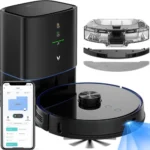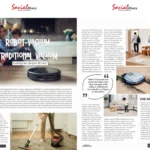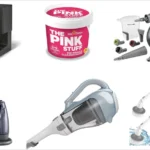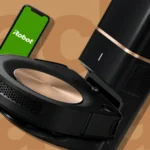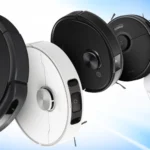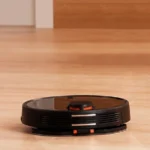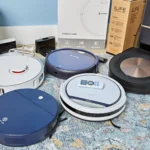Have you noticed that different vacuum cleaners have different types of brush rolls? Are you wondering why this is important and which type is best for your home’s flooring? Choosing the right brush roll is essential in keeping your floors clean and well-maintained. In this article, we’ll explore the features, compatibility with different flooring types, benefits, and drawbacks of the three most common brush roll types: nylon, bristle, and rubber. By the end of this guide, you’ll have a better understanding of which brush roll is the best fit for your home’s unique cleaning needs. So, put on your thinking cap and let’s get started!
Why Choosing the Right Brush Roll is Important
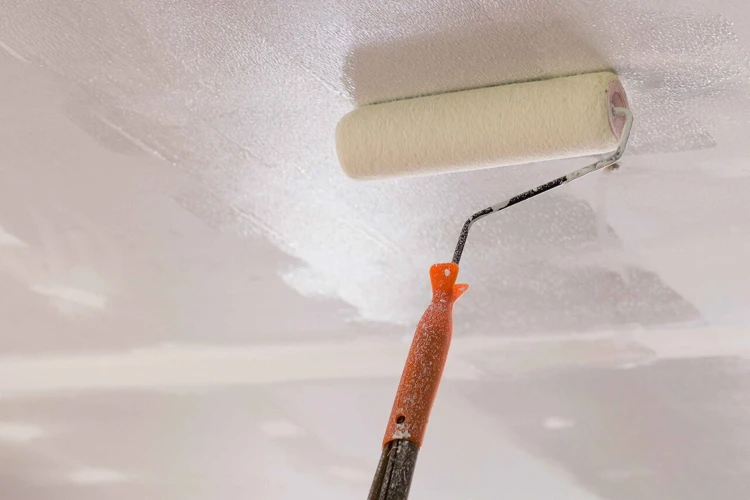
Do you know that the right brush roll of your vacuum cleaner can make a big difference in the cleaning ability of your machine? It is important to choose the correct brush roll for your home’s flooring type to avoid any damage to your floors and ensure the removal of dirt and debris without any difficulty. In this section, we will explore the reasons why choosing the right brush roll is important and how to select the appropriate brush roll based on your specific needs. Additionally, check out our guide to the five factors that affect your vacuum cleaner’s cleaning ability to learn more about maintaining optimal performance of your machine.
Removing Dirt and Debris
The main task of a brush roll is to pick up any dirt and debris from the floor. The type of brush roll used can greatly affect the effectiveness of cleaning any flooring surface. When it comes to removing dirt and debris, each type of brush roll has its own advantages and disadvantages.
- Nylon Brush Rolls: Nylon brush rolls are designed to quickly and effectively pick up dirt, hair and debris from carpets. The bristles are usually longer and softer than those on other types of brush rolls and are good at getting deep into carpet fibers. However, these bristles may not be as effective on hard flooring as they can flick dirt and debris away instead of picking it up.
- Bristle Brush Rolls: Bristle brush rolls are great for hard flooring as they can easily sweep up dirt and debris. The bristles are usually shorter and stiffer than those found on nylon brush rolls, which makes them ideal for harder floors. However, these bristles may scratch or damage wooden or other delicate floors.
- Rubber Brush Rolls: Rubber brush rolls are designed to be gentle on both carpets and hard floors. They can pick up dirt and debris without damaging flooring surfaces. The rubber bristles are also great for picking up pet hair. However, they can sometimes miss smaller particles.
It’s important to consider the type of flooring you have in your home when choosing a brush roll. Choosing the wrong type of brush roll can damage your floors, and it can also affect the effectiveness of the cleaning process.
If you have pets, a brush roll with rubber bristles may be the best choice for removing pet hair and debris. For hardwood and other hard flooring, a bristle brush roll may work well. And for carpets, a nylon brush roll may be the ideal choice.
In addition to choosing the right brush roll, you’ll want to make sure that the overall vacuum cleaner has the suction power, HEPA filters and cyclonic technology necessary to effectively clean your floors.
Avoiding Damage to Flooring
When it comes to choosing the right brush roll for your home’s flooring, one key factor to consider is avoiding any damage to the flooring. No one wants to invest in expensive flooring only to have it damaged by a vacuum brush roll. Here are some ways in which you can avoid damaging your flooring:
- Choose the right brush roll: Selecting the right brush roll can make all the difference. Nylon brush rolls are generally a safe choice for most flooring types, but bristle and rubber brush rolls may cause damage to certain types of flooring. Be sure to consult your flooring manufacturer’s recommendations before making a decision.
- Adjust the height: Most vacuum cleaners have adjustable brush roll heights, allowing them to be used on various flooring types. Adjusting the height so that the brush roll isn’t too low or too high can prevent damage to both carpet and hard flooring.
- Inspect the brush roll: Over time, brush rolls can become damaged or worn down. Inspecting the brush roll regularly and replacing it when necessary can prevent it from causing damage to your flooring.
- Keep the brush roll clean: A dirty brush roll can scratch and damage flooring. Cleaning the brush roll regularly with a brush or comb can prevent debris from accumulating and damaging your flooring.
- Use a vacuum with a brush roll on/off switch: Some vacuums come equipped with a brush roll on/off switch, which allows you to turn off the brush roll when transitioning from carpet to hard flooring. This can prevent damage to both types of flooring.
By considering these tips, you can ensure that your choice of brush roll won’t damage your home’s flooring and will keep it looking new for years to come.
Nylon Brush Rolls
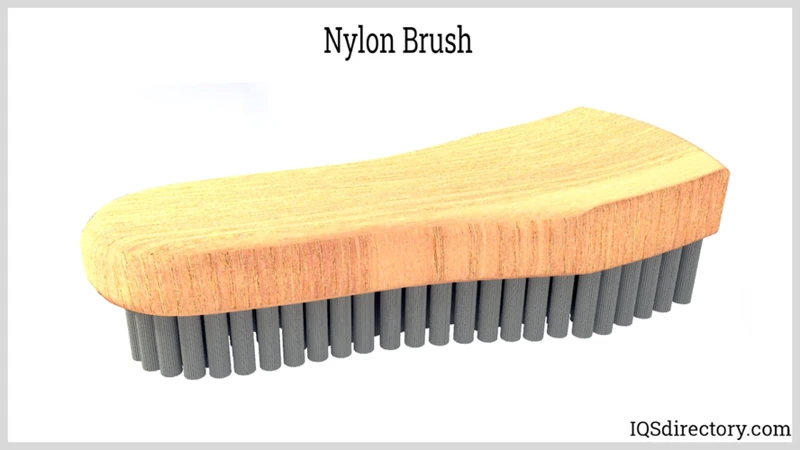
As you explore the world of brush rolls, one option you’ll come across is made from durable nylon material. These brush rolls have unique features that make them a popular choice among homeowners with a variety of floor types. Let’s take a closer look at what makes these brush rolls stand out and whether they might be the right choice for your home.
Features
When it comes to the features of brush roll types, there are some key differences to consider. Let’s take a closer look at each type:
Nylon Brush Rolls:
- Generally made from synthetic materials like nylon
- Often have a straight design with evenly spaced bristles
- May have softer or stiffer bristles depending on the model
- Can be more affordable than other brush roll types
- May not be as durable as other types and need to be replaced more often
Bristle Brush Rolls:
- Typically made from natural materials like horsehair or boar bristles
- May have a curved or wavy design to the bristles
- Can be gentler on flooring surfaces than other brush roll types
- Tend to be more expensive than nylon brush rolls
- May shed bristles over time
Rubber Brush Rolls:
- Typically made from rubber or a rubber-like material
- May have a textured or ribbed design to the brush roll
- Can be gentle on flooring surfaces while still effectively removing dirt
- May be more durable than other brush roll types
- Tend to be more expensive than nylon brush rolls
Understanding the different features of each brush roll type can help you make an informed decision about which one will work best for your home’s flooring. Keep in mind that compatibility with your specific flooring type is also an important consideration.
Compatibility with Flooring Types
When choosing the right brush roll for your vacuum, it’s essential to consider the compatibility of the brush roll with your home’s flooring. Using an incompatible brush roll can damage your floors, rendering them unsightly, and may necessitate costly repairs.
Each type of brush roll has its strengths and weaknesses when it comes to selecting the right one for your specific flooring type. Understanding these differences will enable you to choose the most suitable option for your flooring.
NYLON BRUSH ROLLS: Nylon brush rolls are relatively gentle on flooring surfaces, and because of this, they are suitable for use on many types of flooring. They are especially useful for cleaning delicate carpets or rugs that need extra care. However, it’s essential to note that, while the nylon bristle brush roll is gentle on surfaces, it may not be powerful enough to remove embedded pet hair and dirt from carpets like other brush roll types.
BRISTLE BRUSH ROLLS: Bristle brush rolls are ideal for carpets with thicker, dense piles. They use stiff bristles to penetrate deep into the fibers, removing dirt and debris effectively. However, it’s important to be cautious when using this type of brush roll on hardwood or tiled floors because the hard bristles may scratch or cause permanent damage.
RUBBER BRUSH ROLLS: Rubber brush rolls are highly durable and ideal for removing pet hair from carpets and floors. They feature rubberized bristles that are flexible enough to glide smoothly over hardwood, tile, or carpet flooring. But because the rubber bristle brush roll is significantly more aggressive than the other types, it may cause damage to delicate flooring surfaces.
| Brush Roll Type | Compatible Flooring Types |
|---|---|
| Nylon Brush Rolls | Low to medium pile carpets, delicate rugs, hardwood floors, and tiled surfaces |
| Bristle Brush Rolls | Thicker pile carpets |
| Rubber Brush Rolls | Medium to high pile carpets, hardwood floors, and tiled surfaces |
When it comes to choosing the right brush roll for your vacuum cleaner, you must consider the flooring compatibility of each type of brush roll. Choosing a brush roll that is unsuitable for your floor type can cause costly and irreversible damage. Consider the compatibility table above and choose the brush roll that best meets your flooring needs.
Benefits and Drawbacks
Now let’s take a closer look at the benefits and drawbacks of each brush roll type.
| Benefits | Drawbacks |
|---|---|
| Works well for picking up fine debris such as dust and pet hair | May struggle with larger debris and heavy dirt particles |
| Gentle on delicate flooring surfaces such as hardwood and tile | May not be as effective on carpets and rugs compared to other brush roll types |
| Low cost and widely available on various vacuum models | May need to be replaced more frequently than other brush roll types due to wear and tear |
| Benefits | Drawbacks |
|---|---|
| Effective at picking up larger debris and heavy dirt particles | May cause damage or scratching to delicate flooring surfaces |
| Works well on carpets and rugs to agitate and lift dirt for better suction | May not be as effective at picking up fine debris such as dust and pet hair |
| Durable and long-lasting | May be more expensive than other brush roll types |
| Benefits | Drawbacks |
|---|---|
| Great at picking up both fine and larger debris from various flooring types | May not be as gentle on delicate flooring surfaces as nylon brush rolls |
| Works well on both carpets and hard floors | May be more expensive and less widely available than nylon or bristle brush rolls |
| Durable and long-lasting with less need for replacement | Can be harder to clean than other brush roll types |
It’s important to consider the benefits and drawbacks of each brush roll type when selecting the best one for your home’s flooring. Each one has its own strengths and weaknesses, so it ultimately comes down to your individual needs and preferences.
Bristle Brush Rolls
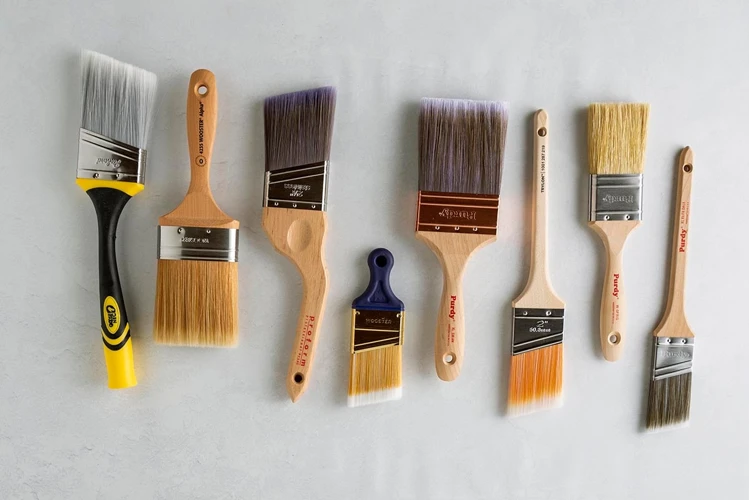
When it comes to selecting the right brush roll for your cleaning needs, there are several options available. One of the most popular choices is a brush roll with bristle fibers. These brush rolls are known for their ability to effectively clean various floor types, but with so many options on the market, it can be hard to determine which one is the best fit for you. Let’s dive into the features, compatibility with different flooring types, benefits, and drawbacks of bristle brush rolls to help you make an informed decision for your cleaning routine.
Features
When it comes to brush rolls, each type has its own unique features. Let’s take a closer look at the distinct features of each brush roll type.
Nylon Brush Rolls:
| Features | Description |
|---|---|
| Density | Nylon brush rolls tend to have densely packed bristles, providing a thorough cleaning experience. |
| Straight Bristles | The bristles on nylon brush rolls are typically straight, allowing for an efficient cleaning process as they make direct contact with the flooring. |
| Stiffness | The stiffness of nylon bristles can vary, making them suitable for carpets with short or long piles. |
Bristle Brush Rolls:
| Features | Description |
|---|---|
| Length | Bristle brush rolls have longer and thicker bristles, suitable for picking up larger debris and hair. |
| Crimped Bristles | The bristles on bristle brush rolls are crimped, allowing them to flex and bend as they come into contact with the surface. This makes them ideal for cleaning uneven surfaces like hardwood floors. |
| Softness | Bristle brush rolls typically have soft bristles, making them ideal for delicate surfaces like hardwood floors that are susceptible to scratches. |
Rubber Brush Rolls:
| Features | Description |
|---|---|
| Density | Rubber brush rolls tend to have densely packed bristles, providing a thorough cleaning experience. |
| Wavy Bristles | The bristles on rubber brush rolls are wavy, allowing them to grip onto pet hair and dust more effectively. |
| Flexibility | Due to their flexible nature, rubber brush rolls can adapt to uneven surfaces, making them ideal for cleaning hardwood floors and carpets. |
Understanding the unique features of each brush roll type is crucial in determining which one best suits your home’s flooring needs. By considering factors like density, bristle type, and stiffness, you can make an informed decision when it comes to choosing the best brush roll for your specific floor type.
Compatibility with Flooring Types
When it comes to choosing the right brush roll for your flooring, compatibility is crucial. Here’s a breakdown of which flooring types are compatible with each brush roll type.
| Brush Roll Type | Compatible Flooring Types |
|---|---|
| Nylon Brush Rolls | Best suited for low to medium pile carpets, area rugs and some hard floors. |
| Bristle Brush Rolls | Best suited for hard floors such as hardwood, tile, and laminate. They can also be used for low to medium pile carpets and rugs. |
| Rubber Brush Rolls | Best suited for hardwood and tile floors. They can also be used on low pile carpets and area rugs. |
Compatibility is important because using the wrong brush roll on your flooring can result in damage or an ineffective cleaning process. For example, using a nylon brush roll on a hardwood floor may cause scratches and dents. Similarly, using a bristle brush roll on high pile carpet may not be effective at removing debris from deep within the fibers.
It’s important to note that some brush rolls may not be suitable for certain flooring types, and using them may void warranties or result in costly repairs. Always check the manufacturer’s recommendations and guidelines before using any brush roll on your flooring.
Benefits and Drawbacks
When it comes to choosing the right brush roll, it’s essential to consider the benefits and drawbacks of each type. Here are some points to consider for each type:
Nylon Brush Rolls Benefits:
- Effective in picking up fine dirt and dust particles
- Works well on low and medium-pile carpets
- Will not scratch or damage hard-surface flooring like hardwood, tile or linoleum
- Some models are less expensive
Nylon Brush Rolls Drawbacks:
- Not as effective on high-pile carpets or rugs, as they tend to get tangled in the bristles
- Not as durable as bristle brush rolls
Bristle Brush Rolls Benefits:
- Effective on all types of carpets including high-pile and plush carpets
- More durable than nylon brush rolls
- Sturdy and reliable in picking up larger debris
- Good for removing pet hair
Bristle Brush Rolls Drawbacks:
- Can scratch or damage hard-surface flooring like hardwood, tile or linoleum
- Less effective in picking up fine dirt and dust particles
- Typically more expensive than nylon brush rolls
Rubber Brush Rolls Benefits:
- Flexible and gentle on all types of flooring surfaces
- Effective in picking up pet hair and large debris
- Easy to clean
- Durable and long-lasting
Rubber Brush Rolls Drawbacks:
- Less effective in picking up fine dirt and dust particles
- Typically more expensive than nylon and bristle brush rolls
Considering the advantages and disadvantages of each brush roll type can help you choose the best option for your home’s flooring needs. Ultimately, the right brush roll will depend on your specific flooring type and cleaning preferences.
Rubber Brush Rolls
As we delve deeper into exploring the best brush roll type for your home’s flooring, it’s time to turn our attention to an option that may be less commonly known: the rubber brush roll. While it may seem like a peculiar choice for a cleaning tool, this type of brush roll has its own unique set of features and benefits that make it a viable option to consider. So, let’s see how rubber brush rolls stack up against nylon and bristle brush rolls.
Features
When it comes to choosing the right brush roll for your home’s flooring, understanding the features of each type is crucial. Here are some features to consider:
- Nylon Brush Rolls: These brush rolls are made of nylon bristles that are stiff and durable. They are often found in traditional upright vacuum cleaners and are ideal for tackling carpets and rugs. The nylon bristles are effective at agitating the fibers in the carpet, helping to loosen dirt and debris.
- Bristle Brush Rolls: Bristle brush rolls are made up of natural or synthetic bristles that are softer than nylon bristles. They are more commonly found in canister or stick vacuums and are perfect for hard floors, such as tile or hardwood. The soft bristles are gentle on the surface of the floors, preventing scratches or damage.
- Rubber Brush Rolls: Rubber brush rolls are made up of rubber bristles that are designed to be especially effective at picking up pet hair and other small particles. They are often found in specialized pet vacuums and can be used on both carpets and hard floors. The rubber bristles are flexible and gentle, preventing any damage to delicate surfaces.
It’s important to note that some vacuums have multiple brush rolls that can be interchanged for different types of flooring. Understanding the features of each type can help you choose the most effective brush roll for your cleaning needs.
Compatibility with Flooring Types
The compatibility of brush rolls with different flooring types is a critical aspect to consider when choosing the right brush roll for your home. Here is a breakdown of the types of flooring and the brush rolls best suited for them:
- Carpet: For carpet flooring, nylon brush rolls are the most suitable option. They are gentle enough to avoid damaging the fibers of the carpet but strong enough to lift any accumulated dirt and debris. Bristle brush rolls and rubber brush rolls can also be used on low-pile carpets, but they are not as effective as nylon brush rolls in removing dirt and debris.
- Hardwood: When it comes to hardwood floors, bristle brush rolls are the best option. They are soft enough not to scratch or damage the wood but stiff enough to remove dust and debris. Nylon brush rolls and rubber brush rolls can also be used, but they may leave scratches and scuffs on the wood.
- Laminate: For laminate flooring, rubber brush rolls are the ideal choice. They are soft enough not to damage the laminate but firm enough to clean the surface effectively. Nylon brush rolls and bristle brush rolls are not suitable as they can scratch and damage the laminate surface.
- Tile: When it comes to tile flooring, any type of brush roll can be used. However, nylon brush rolls are the most effective in removing dirt and debris from the surface, followed by bristle brush rolls and rubber brush rolls.
It is essential to note that the compatibility of brush rolls also depends on the thickness and texture of the flooring. Before picking a brush roll, ensure it is compatible with your flooring type to avoid any damage.
Benefits and Drawbacks
Once you have a good idea of the features and compatibility of each brush roll type, you can now weigh the benefits and drawbacks of each option to determine which is best for your home’s flooring.
Nylon Brush Rolls
| Benefits | Drawbacks |
|---|---|
|
|
Bristle Brush Rolls
| Benefits | Drawbacks |
|---|---|
|
|
Rubber Brush Rolls
| Benefits | Drawbacks |
|---|---|
|
|
By weighing the benefits and drawbacks of each option, you can select the best brush roll type for your home’s flooring. Keep in mind that factors such as cost, compatibility, and durability should also be taken into consideration when making your decision.
Conclusion
After comparing nylon, bristle, and rubber brush rolls, it is clear that each option has its own unique features, compatibility with various flooring types, benefits, and drawbacks.
Nylon brush rolls are ideal for homes with carpeted floors as they efficiently pick up dirt and debris. However, they may not be as effective on hardwood or tile floors as they can potentially scratch or damage the surface.
Bristle brush rolls are a versatile option as they work well on both carpets and hard floors. However, they may not be as durable as other brush roll types, and may eventually wear down over time.
Rubber brush rolls are the most gentle option and are perfect for homes with delicate floors. They are highly durable and can even pick up pet hair without getting tangled. However, they may not be as effective on deep-pile carpets as they may not agitate the fibers as well as nylon or bristle brush rolls.
Ultimately, the best brush roll for your home’s flooring will depend on the specific needs of your household. Consider factors such as the type of flooring in your home, the amount of foot traffic it experiences, and any pets or children who may contribute to the build-up of dirt and debris. By selecting the right brush roll, you can effectively clean your floors while also avoiding any unnecessary damage or wear.
Frequently Asked Questions
What is a brush roll?
A brush roll is a component of a vacuum cleaner that contains bristles or other materials that help to sweep dirt and debris from floors and surfaces as the vacuum cleaner moves across them.
How does a brush roll work?
The brush roll spins rapidly as air is drawn into the vacuum cleaner, causing the bristles or other materials to agitate the surface and loosen dirt and debris that can then be suctioned up by the cleaner.
Why is choosing the right brush roll important?
Choosing the right brush roll is important because different types of roll are better suited to different types of flooring and can help to achieve more effective cleaning while minimizing any potential for damage to the flooring surface.
What types of brush rolls are available?
The three main types of brush rolls are nylon brush rolls, bristle brush rolls, and rubber brush rolls.
Which type of brush roll is best for carpets?
Bristle brush rolls tend to be most effective for cleaning carpets, as the stiff bristles can penetrate deep into the carpet fibers and loosen any dirt and debris that may be trapped there.
Which type of brush roll is best for hardwood floors?
Rubber brush rolls are generally recommended for hardwood floors, as the softer material helps to clean the surface without scratching or damaging the finish.
Can brush rolls damage my flooring?
If the wrong type of brush roll is used on a particular type of flooring, it can potentially cause damage to the surface. It’s important to choose the right type of roll for your specific flooring to avoid any potential for damage.
How often should I replace my brush roll?
Brush rolls should be replaced periodically as they become worn or damaged over time. How often depends on usage and the condition of the brush roll, but a good rule of thumb is to replace it once a year or as soon as it shows signs of wear.
What should I look for when choosing a brush roll?
When choosing a brush roll, you should consider the type of flooring you have, the length and stiffness of the bristles, and the durability and quality of the materials used in the brush roll construction.
Can different types of brush rolls be used on the same vacuum cleaner?
In most cases, yes, different types of brush rolls can be used on the same vacuum cleaner. This can be particularly useful if you have different types of flooring in your home that require different types of brush rolls for optimal cleaning results.


